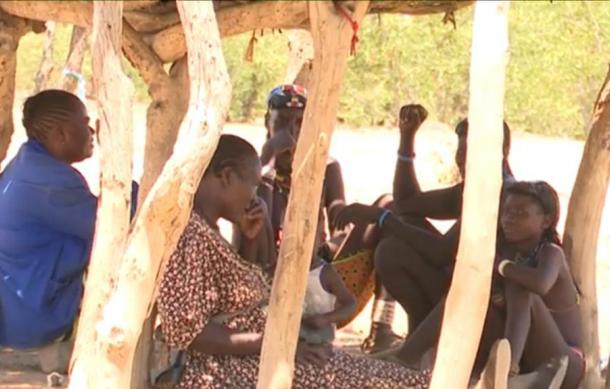
Some of those who fled Angola's protracted civil war and have been living in Namibia for more than twenty years still remain without national documents.
This group of people, mostly the Ovazemba communities found in the Kunene Region, were displaced by the civil war in that country and remain stateless in Namibia.
Historians have found that they are among the San, including other sub-tribes of the Ovaherero, who were the original inhabitants of Namibia.
This is a small community called Ovazemba, which resides on the outskirts of Opuwo, literally a five-minute drive from the Kunene Region's administrative town.
This community of about 13 individuals is but one of many scattered across the region; even with technological advancements at their doorstep, they prefer to still live a nomadic lifestyle.
Mutjenge Ndjembo is 79 years old, and it was about two decades ago that he, together with his wife, crossed the Kunene river into Namibia.
They made this decisive and dangerous decision after hearing news of a good life in Namibia.
At the time when he entered the country, the rains were good, and he got some small stock and started farming, but that would change as soon as the country grappled with one of its longest drought periods.
Their daily routine includes plowing the fields and mostly sitting idly around their huts.
"Our mouths are dry. We do not get anything; there is no support from the government. I sold all my goats when the drought hit; it was the best decision instead of them dying."
Ndjembo, including all the members of his community, does not have any national documents.
Those who have been born in the country too have not been issued birth certificates, and this has resulted in none of the minors going to school.
The Ministry of Home Affairs, Immigration, Safety, and Security says it is in the process of drafting a law to deal with the situation of an estimated 140 thousand stateless people in Namibia.
The ministry's spokesperson, Margreth Kalo, recently encouraged stateless mothers to register their children immediately after birth at any state hospital nationwide.
But the women of this community say they have been turned away by the relevant authorities.
Many of the children here were born in these huts, but despite this fact, the community members applaud the country's health sector, saying that it is the only non-discriminatory state institution when it comes to service delivery.
52-year-old Mbetjitya Kakolokota says the lack of basic services also drastically affects their lives. Some basic services, such as the provision of water, would be appreciated, she says.
"Government incentives would really be of great help. We want the authorities to bring water closer to us; we hardly get any assistance from the government, not even a bag of maize meal."
Stateless persons cannot access public services, obtain identification documents, leave or return to their home country, vote, enroll their children in school, or even work legally.
As a result, they often live in abject poverty.





